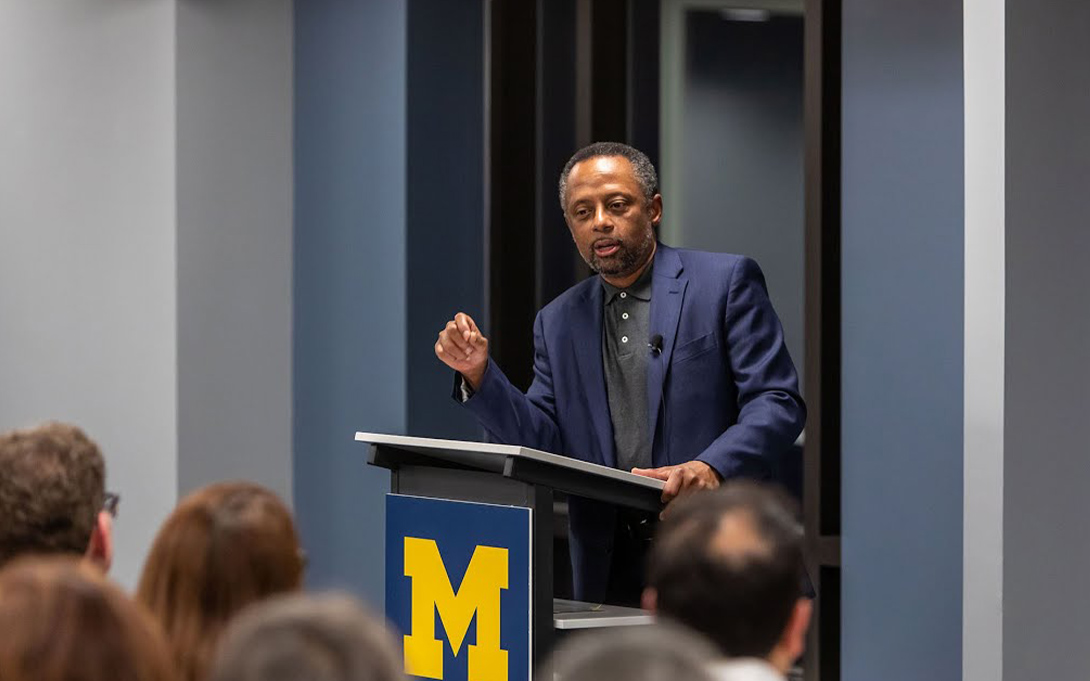
The University of Michigan’s Inclusive History Project is continuing its efforts to engage members of the university community by developing a tri-campus student advisory committee and creating a research and engagement fund.
The project is U-M’s multiyear presidential initiative to study and document a comprehensive history of the university that is attentive to diversity, equity and inclusion.
“The IHP’s efforts build on existing and ongoing ‘inclusive history’ work here at the university, and the research and engagement fund is one way we provide support for that work and aim to encourage others with new ideas and projects to join the IHP’s efforts to produce an inclusive history of our institution,” said Elizabeth R. Cole, co-chair of the IHP and University Diversity and Social Transformation Professor.
Cole also is a professor of psychology, of women’s and gender studies, and of Afroamerican and African studies in LSA, and director of the National Center for Institutional Diversity, where the IHP is housed.
The IHP is accepting funding proposals for research and engagement projects that educate the university community and raise awareness about the university’s past with regard to diversity, equity and inclusion. The projects may inform future reparative actions recommended by the IHP.
Faculty, staff, students and units are invited to apply, as individuals or as collaborative teams, for two types of grants: mini-grants up to $3,000 and large grants up to $25,000. The application deadline is April 5, with accepted proposals to be awarded in late April.
The mini-grants are intended for undergraduate and graduate students as well as for smaller-scale activities. Proposed projects should focus on research, engagement or creative practice. Examples may include histories of particular student organizations, walking tours, collections of materials, exhibitions, presentations, mini-conferences and publications, including zines.
The larger grants are intended to fund the design and application of new research and engagement projects, and the expansion and completion of existing projects. They also will support projects designed to engage the campus and local communities in learning about the university’s history of inclusion and exclusion.
The IHP is interested in proposals for a wide range of projects that include research on the university’s history and engagement efforts, which may include more traditional research projects, exhibits, walking tours, performances and workshops.
Details about the funding guidelines and how to apply can be found online. IHP team members are available for consultations in advance of the April 5 application deadline to provide guidance and answer questions.
To more meaningfully engage with students, the IHP plans to create a tri-campus student advisory committee that will begin meeting and working later this spring.
“The IHP is committed to building a project that covers the whole university and engages broadly across campuses, units, constituencies and stakeholders,” said Earl Lewis, IHP co-chair and Thomas C. Holt Distinguished University Professor of History, Afroamerican and African Studies and Public Policy.
Lewis is also a professor of history and of Afroamerican and African studies in LSA, professor of public policy in the Gerald R. Ford School of Public Policy, and director of the Center for Social Solutions.
“The IHP is a centralized project that can provide leadership and visibility, but the contributions of people across our campuses are vital to this shared project, and this advisory committee will help to point the way to engaging students more deeply in the IHP,” he said.
The committee is open to all students interested in the IHP’s wide-ranging efforts to study and reckon with U-M’s history and create a truly inclusive present and future.
By joining the committee, students will have the opportunity to interact with and learn from senior faculty and campus leaders, and build important skills for professional development.
During the academic year, committee members will meet with IHP leadership to provide feedback on the project, including its historical research, engagement efforts and plans for reparative actions.
Committee members also will attend IHP events and represent the project while building and maintaining connections between the IHP and student groups across our campuses.
More details about the committee and how students can apply can be found online.
Story written by: Lauren Love, The University Record
More news from the Ford School